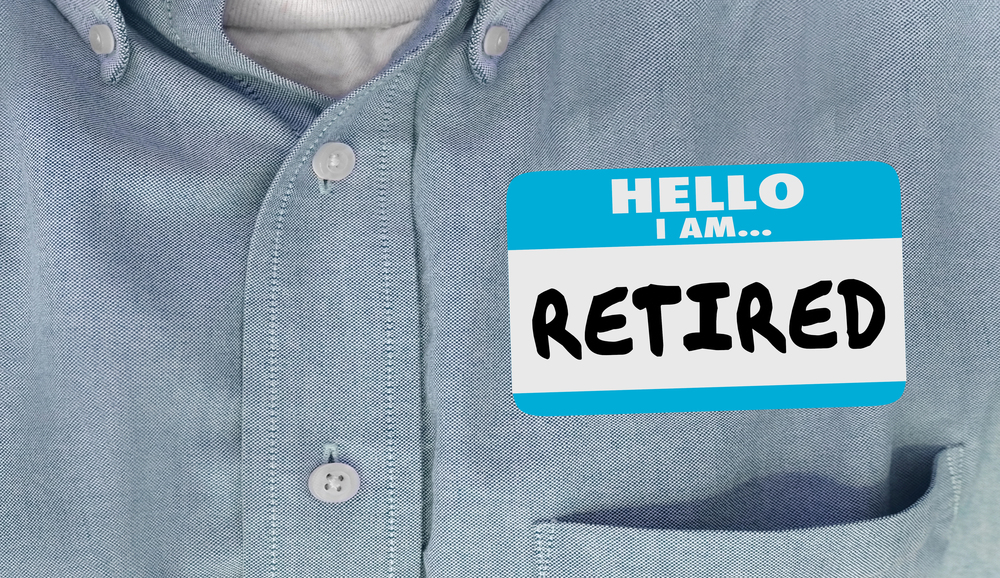Do Work Friendships Fade After Retirement? What Really Happens to Office Relationships

Yes, most work friendships do fade after retirement. Research published in the European Journal of Ageing confirms that retirees typically lose about one peripheral social relationship during the retirement transition, with workplace friendships being the most vulnerable to this change.
Why Do Work Friendships Disappear When You Retire?
Work friendships often evaporate after retirement because they were built on artificial proximity and shared workplace experiences rather than genuine personal connections.
The day I cleaned out my desk drawer for the last time, I snapped a photo with my office buddies. We laughed and swore we'd keep in touch. I fully believed it. Then reality hit—three months into retirement, half those text chains were dead silent, and I was staring at my phone wondering what happened to all those "lifelong" work friendships.
According to research from the European Journal of Ageing, this experience is scientifically predictable. The study of Finnish public sector employees found that retirement leads to a loss of approximately 0.67 people from your outer social circle—primarily work acquaintances and casual workplace friendships.
What Makes Workplace Relationships So Fragile?
Work friendships develop in what researchers call an "artificial ecosystem"—we're thrown together for 8+ hours daily for decades. No wonder these bonds feel real. But here's the brutal truth I've discovered: many workplace relationships are built on shared frustrations, mutual workplace dependence, and simple proximity—not genuine personal connection.
That weekly happy hour might've been more about blowing off work steam than actual friendship. Without the natural touchpoints of daily coffee runs or copy machine conversations, maintaining these connections suddenly requires intentional effort that many relationships simply cannot sustain.
How Life Paths Diverge After Retirement
While I'm figuring out how to fill Tuesday afternoons with cycling or learning new technology, my former colleagues are stressing about quarterly reports and office politics. Our daily realities no longer overlap, creating an emotional distance that surprised me with its speed.
As we age, research shows we naturally prioritize emotionally meaningful relationships over ones that served practical purposes. This psychological shift, combined with completely different daily schedules, creates the perfect storm for workplace friendship fadeouts.
What Types of Work Relationships Actually Survive Retirement?
The work relationships that survive retirement are those that had already evolved into genuine personal friendships before you left the workplace.
Coffee Buddies vs. True Confidants
Looking back, I can clearly distinguish between coffee buddies and true confidants. Coffee buddies were daily chat partners who discussed safe topics—weekend plans, TV shows, office gossip. We never ventured into deeper territory like health struggles, marriage problems, or personal dreams.
True confidants were different. These were people who'd seen me emotional after tough meetings or who knew about my family health struggles. We'd already crossed the bridge from "work friends" to "real friends" long before retirement day arrived.
Professional Respect vs. Personal Connection
I respected dozens of colleagues for their professional brilliance. We'd exchange LinkedIn endorsements and career advice. But when I no longer needed industry insights, these relationships lost their foundation. Without mutual professional benefit, conversations quickly became strained.
The relationships that survived were with people who knew and valued me beyond my job title. They asked about my family unprompted and remembered my personal interests. We had built something authentic beneath the professional veneer.
How Can You Keep Work Friendships Alive After Retirement?
Maintaining work friendships after retirement requires specific, scheduled plans and equal effort from both people—vague promises to "stay in touch" rarely work.
What Communication Methods Actually Work?
Different communication tools work for different friendship styles:
- Group texts keep my old lunch crew connected with quick updates and memes
- Video calls with my former office best friend every few weeks recreate our old coffee break feeling
- Email works wonderfully with my former mentor who prefers thoughtful, longer exchanges
The key insight? Don't expect a single communication method to work for everyone. My quarterly phone calls with Tom might seem infrequent, but they're perfect for our friendship style.
Why Concrete Plans Beat Good Intentions
Here's a hard truth: "We should grab lunch sometime!" means absolutely nothing after retirement. Vague intentions rarely materialize into actual meetups.
What works? Specific invitations with dates, times, and activities. "Want to try that new Italian place next Thursday at 1?" gets results. Even better is establishing routines—my monthly breakfast with former teammates has outlasted most other work connections precisely because it's a standing date we all protect.
When to Accept That Some Friendships Won't Survive
The most painful lesson was accepting that no matter how much effort I put in, some connections just won't survive retirement. My relationship with Kevin—who I considered my work best friend for a decade—fizzled despite persistent efforts on my part.
The friendships that thrive now are those where both people adapt and make effort. My weekly coffee with Bill works because he meets me halfway—literally and figuratively. He understands my new schedule and priorities, while I respect his ongoing career commitments.
What Happens When Work Friends Fade? Building New Connections
When work friendships fade, you can build meaningful new connections through hobby groups, volunteering, and community activities that align with your retirement interests and values.
How to Find Your People Through Shared Interests
Remember those hobbies you never had time for during your working years? They're friendship goldmines. I joined a local photography club with zero expectations beyond learning camera settings. Six months later, four club members became my weekend adventure crew.
Unlike work connections, hobby-based friendships start with guaranteed common interests. Conversations flow naturally, and there's less pressure because the activity itself fills awkward silences. Plus, you're meeting people across different age ranges and backgrounds—not just others in your same career stage.
Why Volunteering Creates Stronger Bonds Than Work Ever Did
Six months into retirement, I was climbing the walls with boredom and missing workplace purpose. Volunteering at our library's literacy program changed everything by connecting me with purpose-driven people who share my values.
Unlike workplace relationships based on company goals, volunteer connections form around causes we genuinely care about. These relationships feel refreshingly clean—free from office politics and career competition. Nobody cares what my former title was or which company I worked for.
What Are the Emotional Effects of Losing Work Friendships?
Losing work friendships can create unexpected loneliness and identity confusion during retirement, affecting approximately 25% of older adults who experience social isolation according to the National Institute on Aging.
Why Retirement Loneliness Hits So Hard
Three months into retirement, I hit a wall of loneliness that blindsided me. After the initial vacation-like freedom wore off, I missed not just the work, but the web of daily human connections that had surrounded me for decades.
According to the National Institute on Aging, about 25% of older adults experience social isolation, and this transition often coincides with retirement. The silence of going from "surround sound to silence overnight," as one fellow retiree described it, is a normal part of transition that we need to acknowledge.
How Identity Changes Affect Friendships
For 35 years, I introduced myself with my job title. Retirement stripped away that easy identity marker, leaving me surprisingly vulnerable in social situations. Meeting former colleagues became awkward when work talk died down, and I realized we didn't have the same conversational hooks anymore.
Creating a meaningful post-career identity takes time and involves rediscovering passions shelved during busy working years. These new activities slowly become identity anchors, replacing the professional role that career once provided.
Which Work Friendships Are Worth Fighting to Keep?
Work friendships worth preserving are those with people who knew you across decades, provide continuity between your working and retired identity, and offer unique historical perspective on your life journey.
The Irreplaceable Value of People Who Knew You When
There's something irreplaceable about friends who knew you in your professional prime. When I doubt myself or my contributions, my former colleague Diane remembers specific achievements I've forgotten. "Remember that impossible Wilson account you landed? No one else could have pulled that off," she reminded me during a particularly low moment.
These friends provide continuity between your working self and retirement self—a bridge that helps maintain identity during transition. They celebrate retirement milestones with special understanding because they witnessed your entire career journey.
How Some Work Relationships Actually Deepen After Retirement
Interestingly, some longstanding relationships have actually deepened since retirement. Without office politics and professional hierarchy constraints, we've discovered new friendship dimensions. My former department head Michael, once somewhat reserved due to our reporting relationship, has become one of my closest confidants.
While newer friends bring fresh perspectives, these long-standing connections offer the irreplaceable gift of being truly known across decades. Like old school friends, they hold pieces of my history that would otherwise be lost forever.
How Should You Plan for Friendship Changes Before Retiring?
Before retiring, mentally inventory which workplace relationships truly matter to you personally, and begin transitioning those connections beyond work topics while you're still employed.
Creating Your Post-Work Social Strategy
Looking back five years into retirement, I see that the evolution of my work friendships wasn't random. I should have been more intentional about identifying which colleagues genuinely brightened my days or challenged me to grow—these were the connections worth preserving.
Rather than lamenting the natural evolution of workplace relationships, I've learned to appreciate both the friendships that endured and those that served their purpose during working years. Each connection—whether lasting or temporary—contributed to my life journey.
What the Research Says About Social Network Changes
Studies consistently show that retirement doesn't necessarily reduce overall social network size, but it does cause reorganization. According to longitudinal research, retirees typically lose work-related peripheral ties while maintaining or even strengthening family and close friend relationships.
This natural transition process affects everyone similarly, regardless of gender, occupational status, or health—it's a predictable part of retirement that you can prepare for by building non-work social connections before you retire.



